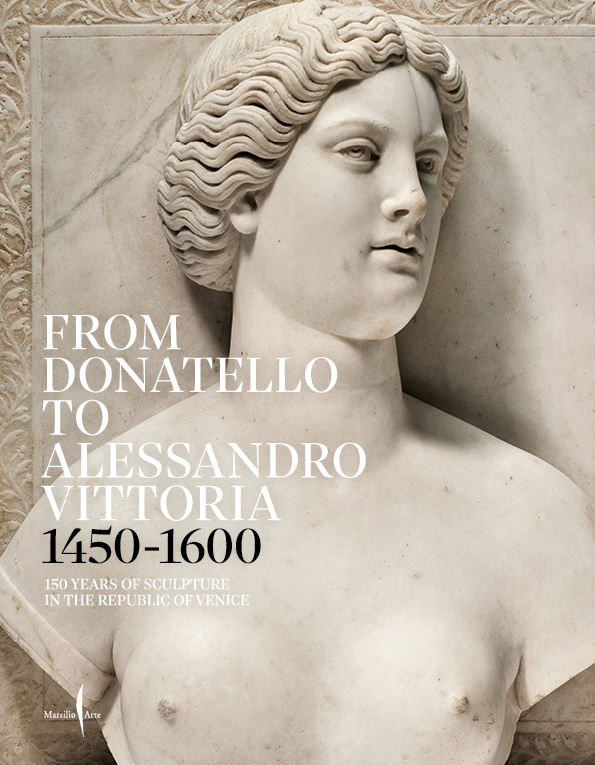
A rich catalog to learn about the Florentine genius of Donatello and the activity of his direct disciples in the territories of the Serenissima, on the occasion of the homonymous exhibition (Venice, Galleria Giorgio Franchetti alla Ca' d'Oro, 22 April 2022 - 30 October 2022).
This volume, published in both Italian and English on the occasion of the homonymous exhibition at the Galleria Giorgio Franchetti alla the Ca' d'Oro from 22 April to 30 October 2022, intends to analyze some particularly significant moments of a very broad story, such as that of the sculptural production in the Venetian Republic from the early Renaissance to the late Manner (mid-15th-early 17th century), highlighting the complexity and richness of stylistic and iconographic contributions in those years of strong renewal for the local figurative culture. Donatello's language arrived early in the lagoon, already around 1423, through the arrival of some Florentine sculptors such as Pietro di Niccolò Lamberti and Nanni di Bartolo, but the great sculptor's stay for a decade in Padua (1443-1453) was a turning point. Around the second half of the 15th century, the sculptors and architects Antonio Rizzo and Pietro Lombardo, together with the latter's sons - Tullio and Antonio - were the protagonists of this revival season, and actually introduced the stylistic features of the Renaissance in Venice. Towards the middle of the 16th century the figure of Jacopo Sansovino - who collaborated with numerous sculptors such as Alessandro Vittoria, famous in turn for the creation of important sculpted portraits of illustrious personalities of the time – dominated the city’s artistic life. The volume opens with two important essays by the curators Toto Bergamo Rossi and Claudia Cremonini, and is enriched by the texts of Luca Siracusano, Andrea Nante, who examines the years spent by Donatello between the cities of Padua and Venice, Jeremy Warren, who compares the Renaissance lagoon sculpture with ancient art, Bruce Boucher with an exhaustive study on Jacopo Sansovino and finally Philippe Malgouyres investigates the bronze sculpture of the first third of the sixteenth century in Venice. The texts are accompanied by a wide selection of images of the works on display, many of which are part of the photographic campaign curated by Matteo De Fina, designed specifically for the publication of the catalog.